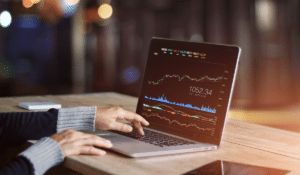Forex Trading – Everything you need to know – that will be the topic of today’s article.
If you are looking to invest as an expat or high-net-worth individual, which is what I specialize in, you can email me (advice@adamfayed.com) or WhatsApp (+44-7393-450-837).
We don’t recommend Forex trading for most people, but we will go over the positives and negatives on this article.
Table of Contents
What is Forex?
Forex stands short for Foreign Exchange, and it is the process of buying a selling one currency in exchange for another. It is also called FX.
The forex market is said to be the largest financial market in the world that runs 24 hours a day. Not just countries, but even businesses and individuals also participate in this market globally.
This makes it a very liquid market with up to $7 trillion of trading volume per day.
How does it work?
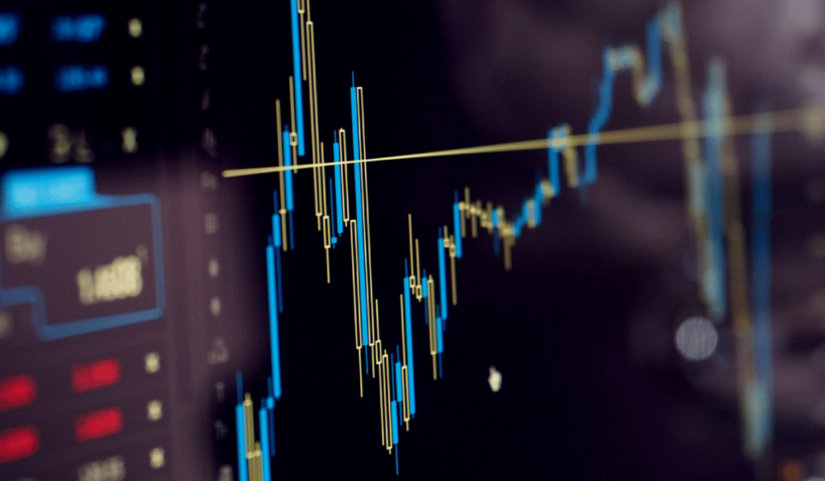
So, what happens on a daily basis is that currencies increase and decrease in value in relation to other currencies.
For instance, the USD today (28 January 2023) is around 0.81 Pound Sterling. This may increase to 0.82 or more, and at the same time, it may decrease to 0.80 or less.
From these price movements, traders can make profits from speculating on the price movement of those currencies.
For example, if you buy £810 for $1,000 and the price increases to £0.82 per $1, you will be making a profit of £0.02 per each $1, i.e., $20 profit.
The demand for such a currency will result in the upward or downward movement of the price.
Rather than assets such as shares or commodities, forex trading does not take place on exchanges, but it directly happens between two parties.
This is done with the help of an over-the-counter (OTC) market.
The forex market is supervised by a global network of banking institutions, which are based on four major forex trading centres in different time zones. They are:
— London
— New York
— Sydney
— Tokyo.
Because of the reason that there’s no centralized location for this to happen, forex trading can be done all day.
Forex markets are divided into three different categories, which are:
— Spot Forex Market
— Forward Forex Market
— Future Forex Market
In the spot forex market, the physical exchange of a currency pair takes place, which takes place at the exact point the trade is settled.
It is done on the spot or happens within a short span of time.
In the forward forex market, a contract agreement is made to buy or sell a set amount of a currency at a specified price.
This would be settled at an agreed-upon date in the future or within a range of future dates.
In the future forex market, a contract agreement is made to buy or sell a set amount of a given currency at a set price and date in the future.
Unlike in the forward forex market, a future forex contract is legally binding.
In most cases, traders speculating on forex prices don’t plan on taking delivery of the currency itself.
Rather than that, they make predictions on the exchange rate to take advantage of price movements in the market.
Having learned about how the forex markets and trading work, now, we will have a look at some important terms related to forex trading.
Important Information
This section would include all the important terms and other information that you will come across as a forex trader.
Base Currency and Quote Currency
A base currency refers to the first currency listed in a forex pair, i.e., in a GBP/USD currency pair, the base currency is GBP.
At the same time, the second listed currency is said to be the quote currency, and in the above example, it is USD.
As I’ve already explained, forex trading involves selling one currency in order to buy another, and this is done by quoting them in pairs.
The price of a forex pair determines the value of how much a unit of the base currency is equal to the quote currency.
The currencies in a currency pair are listed in the form of a three-letter code.
This is usually formed of two letters referring to the region, and one referring to the currency.
For instance, the GBP/USD currency pair can be said as an example. Here, buying is done in the Great British pound, and selling is done through the US dollar.
Going Long and Going Short
While writing this, the GBP/USD is around 1.24, which means that one Great Britain Pound is equal to 1.24 US Dollars.
When the pound rises against the dollar, then the value of a single pound will be worth more with respect to the US dollar.
This would lead to an increase in the pair’s price.
When the price drops, the pair’s price will decrease.
Based on that, when you think that the base currency in a pair is likely to increase against the quote currency, you can buy the pair.
This is known as Going Long in the forex trading terminology.
When you think that the base currency will decrease in price, then you can sell the pair. This is known as Going Short in the forex trading terms.
Types of pairs
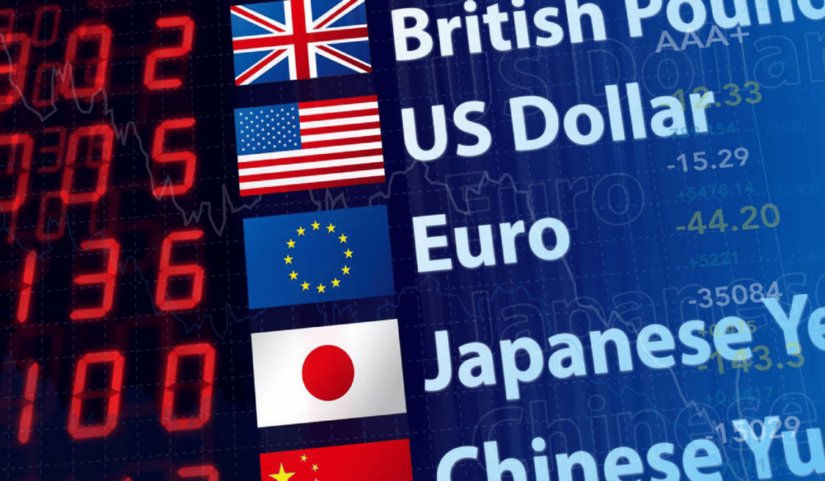
Based on the characteristics, currency pairs are classified into the following types, which are:
— Major Pairs
— Minor Pairs
— Exotic Pairs
— Regional Pairs
Major pairs are the seven currencies that are responsible for 80% of global forex trading. They are EUR/USD, USD/JPY, GBP/USD, USD/CHF, USD/CAD, and AUD/USD.
Minor pairs are those, which are traded less frequently, and these often feature major currencies against each other instead of the US dollar. Examples include EUR/GBP, EUR/CHF, and GBP/JPY.
Exotic currency pairs refer to a pair where a major currency is against a currency from a small or emerging economy. Examples include USD/PLN (US dollar vs Polish zloty), GBP/MXN (Sterling vs Mexican peso), and EUR/CZK.
Regional pairs are classified by region, for instance, Scandinavia or Australasia. Examples include EUR/NOK (Euro vs Norwegian krona), AUD/NZD (Australian dollar vs New Zealand dollar), and AUD/SGD.
What causes the price movements?
The forex market is comprised of currencies from all over the world. This makes the exchange rate predictions hard as there are multiple factors that contribute to price movements.
Anyhow, similar to most financial markets, forex is primarily driven by the forces of supply and demand.
Therefore, it is important to understand the factors that influence price fluctuations.
Supply is handled by central banks that announce measures, which have a significant effect on their currency’s value.
Quantitative easing is about injecting more money into an economy, and this can result in a currency’s price drop.
Commercial banks as well as investors want to put their capital into economies that have a robust outlook.
Hence, when a positive piece of news hits the markets about a country, it will motivate the chances for investment and increase the demand for that currency.
When there is no similar increase in supply for the currency, the difference between supply and demand causes the price to increase.
At the same time, negative news can cause investment to fall and lower a currency’s value.
This is the reason for currencies to reflect the reported economic health of the country they belong to.
Market sentiment is the reaction to the news about a currency, and it can also play a major role in currency price fluctuations.
When traders believe that a currency is headed in a certain direction, they will trade accordingly and may convince others to do so.
This will result in a situation where the price increases or decreases based on the demand.
Economic data is yet another factor that contributes to the price movements of currencies.
This is based on two reasons, i.e., an indication of an economy’s performance, and an insight into the country’s central bank’s future decisions.
For instance, assume that inflation in the eurozone has risen above the 2%, which is the percentage that the European Central Bank (ECB) tries to aim for.
The primary choice of the ECB to deal with rising inflation is to increase European interest rates.
Therefore, traders might start buying the euro with the expectation of rates to increase.
When more traders are interested in buying the euros, EUR/USD could see a price rise.
Traders try to maximize the profits they can get from a market while opting for low risk.
Hence, apart from the interest rates and economic data, credit ratings are also important in deciding where to invest.
A country’s credit rating is regardless of its chances of repaying its debts.
Countries with a high credit rating are regarded as safer choices for investment than those with a low credit rating.
This is usually a well-focused factor when credit ratings are upgraded and downgraded.
Those with an upgrade in the credit rating may experience a currency increase in price and vice versa.
How to Trade?
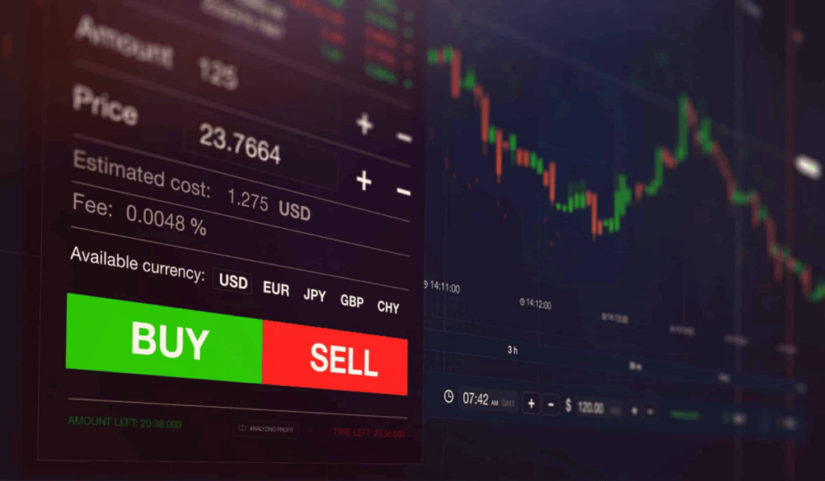
There are multiple ways to trade forex, but the working procedure is the same for all methods.
By this, I mean you would buy one currency while selling another.
In general, most forex transactions are being made via a forex broker.
Nonetheless, the surge in online trading allows you to make money from forex price movements via derivatives such as CFD trading.
I’ve said it before, and I am saying it again, CFDs are complex financial instruments that are risky.
They are leveraged products that allow you to open a position for just a fraction of the total value of the trade.
In par with the non-leveraged products, you don’t get access to the ownership of the asset.
Yet, you take a position on whether you anticipate the market to rise or fall in value.
It is beneficial to have magnified profits, yet you will also magnify the losses, which is extremely risky.
Spread
The spread is nothing but the difference stated between the buy and sell prices in a forex pair.
Similar to most financial markets, when you open a forex position, you are provided with two prices.
When you want to open a long position, you usually invest at the buy price, which is more than the market price.
At the same time, if you open a short position, you invest at the sell price that is below the market price.
With the help of spreads, brokers are able to make money from the trades they help to execute.
There is a strategy known as spread trading, where you open both the long and short trades at the same time. This is useful in avoiding huge losses and making small profits if done effectively.
Lot
Currencies are traded in batches known as lots, which are used to standardize forex trades.
As forex moves in small amounts, lots tend to be hefty, for instance, a standard lot is usually 100,000 units of the base currency.
Basically, individual traders may not have 100,000 pounds or any other currency they’re trading.
Because of that reason, forex trading is mostly leveraged.
Leverage
Leverage is the amount being borrowed from the investment provider, which allows maximum exposure toward the currency.
For example, when you want to trade by buying 100,000 pounds, you won’t necessarily have to invest all the amount.
You can just put up a fraction of the amount as capital, which allows you to get as much exposure as you would get when traded with 100,000 pounds.
Leverage may or may not be beneficial even though it sounds very lucrative. Yes, you would get as many profits as you would if traded with the whole amount.
At the same time, you would also lose money in the same range if traded with the whole amount. This results in a scenario where most people tend to lose their hard-earned money because of such high-risk investments.
Margin
I just explained about the leverage, and in that leverage trading, the amount being put as the initial deposit is known as the margin.
The margin requirement and the actual margin amount will differ from provider to provider and the size of the trade.
It is generally expressed as a percentage of the total trade value, i.e., 1% of the total trade value of 100,000 GBP would require 1,000 GBP.
Pips
The units that are helpful to measure movement in a forex pair are known as pips.
In general, a forex pip is considered a one-digit movement in the fourth decimal place of a currency pair.
For instance, if the GBP/USD moves from $1.85361 to $1.85371, then it has moved one pip upward.
The decimals after the pip are known as fractional pips, and you might come across them as pipettes.
However, not all the currencies may have so many decimal places while calculating the pip, and in such situations, the second decimal place is taken into consideration.
For example, the EUR/JPY is around 141.55, and if it moves to 141.56, then the movement would be considered a single pip.
Timings
Talking about the number of hours, you trade forex 24 hours a day for five days a week, i.e., from 5 PM EST on Sunday to 5 PM EST on Friday.
Scalping
Scalping is a trading strategy that involves trading activity for a very short time span. Traders exit their positions as soon as they experience a small amount of profit and do not seek higher returns.
This is usually done by traders who execute trades that last for a brief couple of minutes, and sometimes even seconds.
Not forex trading, but scalping can also be observed in other types of trading activity such as stocks and futures.
Gaps
Gaps are the points when there is a quick movement in the price from one price point to another price point. There is usually no halting between these two price points and that’s the reason why it is called a gap.
Gaps happen in the forex market very less often compared to other financial markets because they are traded throughout the day.
It mostly happens when certain economic data is released that involves changes in the market.
It may also happen when the trading activity starts in the next week after being closed during the weekend.
How would the price have such sharp movements when the trading is closed for the weekend?
Well, the market is only closed for speculative trading activity, but it is still open for central banks and relevant authorities.
Advantages and disadvantages
Here, let us know about the befits of forex trading as well as the downsides to it. Let us begin with the advantages.
— Accessibility to the forex market is easy and you can start forex trading from anywhere in the world, with just an online trading account.
— Most providers do offer a demo account, which can be used until you get accustomed to all the necessary things.
— Leverage provides more exposure to the market, and you may be able to get leveraged positions with only 1% as a margin requirement.
— Depending on the broker you choose, you may exit profitable positions quickly as soon as they are liquidated.
— The trading activity can be done freely where you can easily go long or go short, or even open simultaneous positions at the same time.
— The liquidity in the forex market is very high compared to any other capital market, and central banks are held accountable for the supervision of their currencies.
— The chances for market manipulation are very little because of the size and depth of the forex market.
— The trading costs of forex trading are also lower compared to most other markets, and most brokers offer the best rates.
— With the help of brokers that allow trading on MetaTrader4 and MetaTrader5 trading platforms, you can access automated trading.
— The forex market is available 24 hours a day, which is quite advantageous for people who want to trade regardless of the time.
These are some of the benefits of forex trading, now let’s take a look at some of the drawbacks.
— First of all, forex trading is a risky investment and may not be suitable for all types of traders and investors.
— Leveraged trading is beneficial to get exposure but it also significantly magnifies your losses.
— While trading as a retail trader, you will be trading against a multitude of professional traders. These include global corporations, central banks, and hedge funds, which are mostly exerting their presence in the forex market.
— As you are dealing with different currencies, you will need some knowledge of economic events to make profits.
— Depending on the broker’s jurisdiction, there will be little to no regulation, which can be an issue in some countries.
— If you are from Europe, the UK, or the USA, you will have to go ahead with a broker that is regulated by the financial authorities.
— Volatility is something short-term traders have to experience, and in some cases, medium or long-term investors may also be affected.
— It is wise to stay patient until you find the right opportunity because a hasty decision may always result in losses. It is better to practice with a demo account as long as you don’t possess all the necessary knowledge and skills.
Tips for forex trading
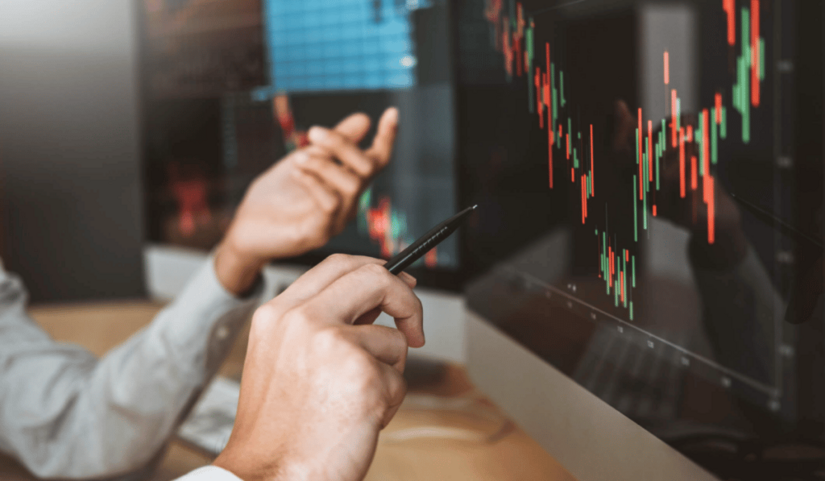
Given below are some useful tips for people who want to start forex trading. I generally do not recommend risky investment assets such as forex, CFDs, etc.
If possible, try to opt for better solutions such as stocks and funds, and if not possible, try to limit your investment in such financial instruments.
To begin with, you must get accustomed to the markets, i.e., learn everything about them.
Create a forex trading strategy and always try to stick to it for success. The strategy should be based on factors such as investment goals, risk profile, methodology, and evaluation skills.
Before actually starting to trade in live accounts, it is always wise to play around with a demo account.
This helps you acquire a complete understanding of all the important aspects and create a trading strategy that works in your favor.
If you are a fundamental trader, focus on the news and data, and if you are a technical trader, opt for technical indicators.
In general, most forex traders go for using both options regardless of their style, and this helps in finding the right opportunities.
Trade with an amount that is within your limits, and do not invest anything more than what you are able to risk losing.
Leverage can be lucrative, but you should go ahead with overtrading as it simply increases the risk involved.
Always keep an eye out for when they exit a position by managing risk and safeguarding potential profits.
Sticking to your trading strategy even when things are going against you is important. This is because opening a couple more trades, which may not happen according to your situation, might worsen things for you.
You can alternatively re-evaluate your trading strategy if things don’t seem to work your way.
Finally, the most important thing to be done is to choose the right type of broker as well as the trading platform.
The right broker will help you with the costs involved, and at the same time, the right trading platform provides all the tools you need. Also see my trading platform reviews list where I talk about the 10 best DIY trading platforms in the UK.
Bottom Line
I hope you found the information provided in this article, i.e., about forex trading, to be useful.
The information provided in this article is just for educational purposes and it should not be considered actual financial advice.
I neither endorse the readers to opt for forex trading nor do I oppose them from doing so. All the opinions in this article are strictly personal and some tips may or not be advantageous to you while trading.
I finally say that forex trading is not something that suits all types of investors, especially considering the risk profile.
It rather falls under the riskier side of investments such as CFDs, Futures, etc., which may not be lucrative.
It is wise to limit such investments to a certain part of your portfolio instead of completely immersing yourself in such financial instruments.
I think that it is best to invest in other types of investment assets like stocks, bonds, real estate, mutual funds, etc.
If you are planning for the retirement of economic security, then you can benefit from the best-in-class services I offer.
Most of my services are related to wealth management and investment portfolio management.
I have helped numerous clients attain financial freedom and you can be a potential client among them. Don’t hesitate to contact me to find out whether you can benefit from my top-notch services.
Pained by financial indecision? Want to invest with Adam?

Adam is an internationally recognised author on financial matters, with over 760.2 million answer views on Quora.com, a widely sold book on Amazon, and a contributor on Forbes.

